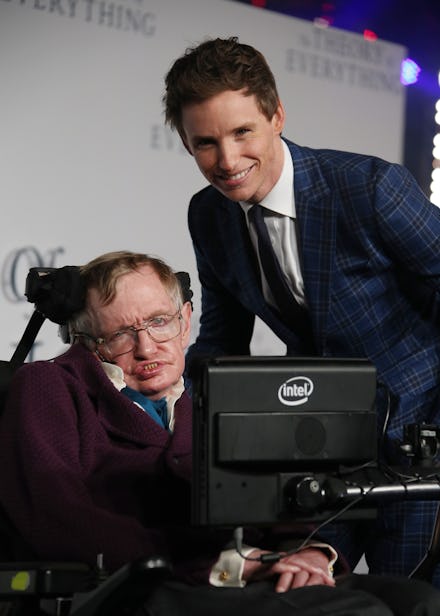Stephen Hawking Says Capitalism Is Way Scarier Than the Robot Takeover

Superstar theoretical physicist Stephen Hawking just took a strong stance on income inequality, political lobbying and the redistribution of wealth. During a curated Reddit "Ask Me Anything" session July 27, Hawking was asked whether he saw technological unemployment — robots and computers taking human jobs — as a threat.
"Do you foresee a world where people work less because so much work is automated?" the AMA moderators asked Hawking. "Do you think people will always either find work or manufacture more work to be done?"
"Everyone can enjoy a life of luxurious leisure if the wealth is shared."
But Hawking didn't answer directly. It's futile to argue the yes/no binary of whether or not technological innovation that's already happening is going to continue happening. Instead, he addressed the issue of what we'll be dealing with when that reality comes around.
"If machines produce everything we need, the outcome will depend on how things are distributed," Hawking answered in a response published on Reddit's /r/science forum Thursday. "Everyone can enjoy a life of luxurious leisure if the machine-produced wealth is shared, or most people can end up miserably poor if the machine-owners successfully lobby against wealth redistribution. So far, the trend seems to be toward the second option, with technology driving ever-increasing inequality."
The top response: "Oh man, that's depressing. And probably the path we're on."
What will wealth redistribution look like in the future? One of the most popular responses to a dystopian possibility in which all of our jobs disappear and a few shareholders are in control of the production of fundamental goods is a system of universal basic income, where everyone is given a base salary simply for being alive.
Most of the proposals somehow involve a progressive taxation policy that makes the wealthy more culpable for holding more control of resources when goods and services are becoming more abundant.
Still, corporations that stand to gain by replacing a human workforce with automation won't, at a time of staggering income inequality, easily cede territory to interventionist regulation and burdensome taxation. A look at the coal industry, for example, shows how industries that automate and reduce the workforce can then turn the blame around on regulators.
Hawking also touched on the "Terminator problem," or how to create robots that aren't bent on human destruction. "Encourage your students to think not only about how to create AI, but also about how to ensure its beneficial use," he told a teacher. "The real risk with AI isn't malice but competence. A superintelligent AI will be extremely good at accomplishing its goals, and if those goals aren't aligned with ours, we're in trouble."